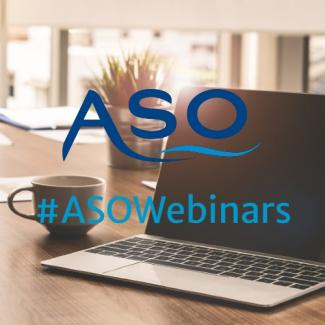Banning the advertisement of junk food:What does this mean for society, and what happens next?
Hosted by ASO East of England Network
Thursday 28th October 2021, 18.00 - 19.30
#ASOWEBINARS
Ahead of the government proposal to ban junk food advertisements on television before 9pm and prohibited completely online, this webinar will explore the evidence contributing to this bill. Speakers will consider what this means for society, and what should happen next.
6.00pm: Welcome - Dr Julia Mueller, Ms Rebecca Jones, and Dr Carly Hughes
6.05pm: “Evidence underpinning the new policy – identifying gaps and future directions”–Dr Emma Boyland, University of Liverpool
6.25pm:“Preparing for new restrictions on TV and food advertising: the potential impacts on the commercial food system, health, and society.” – Dr Hannah Forde, University of Cambridge
6.45pm:“How might the new restrictions influence public and political discourses on dietary health and responsibility?”– Dr Claire Thompson, University of Hertfordshire
7.05pm: Panel Q&A, chaired by Dr Mueller and Ms Jones
7.30pm:Summary and close
Novo Nordisk has provided sponsorship to the Association for the Study of Obesity (ASO) to fully fund all costs for the development of this webinar, including creation, organisation, production and administration. Novo Nordisk has had no influence on the content and full editorial control remains the sole responsibility of ASO. None of the speakers have received a fee for their participation in this webinar, and ASO has been fully responsible for engaging with participants.
Speakers
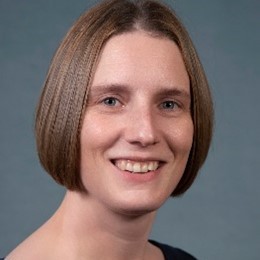 Dr Emma Boyland
Dr Emma Boyland
University of Liverpool
Emma Boyland is a psychologist and senior lecturer based at the University of Liverpool, where she is lead of the Appetite and Obesity Research group. Emma has over 15 years of experience in eating behaviour research. Her work principally focuses on the food environment, characterising the foods and beverages available and the way they are marketed via traditional and digital means, as well as seeking to understand how this impacts eating behaviours (choice and intake) and determinants of eating behaviour (beliefs, attitudes, preferences), particularly in children. She has received research funding to her institution from the World Health Organization (WHO), the Australian Research Council, Cancer Research UK, Public Health England, and the Wellcome Trust.
Emma has published over 90 peer-reviewed journal articles, 8 book chapters and three WHO Europe reports on food marketing. She has recently completed two WHO commissioned reviews on the impact of food marketing on eating behaviour and health and the effectiveness of food marketing policies to inform international WHO guidelines. She sits on the WHO Global Steering Committee for digital food marketing and is an expert advisor to both WHO Europe and Unicef, leading food marketing monitoring studies across Europe, Latin America, and the East Asia-Pacific region. She is a member of the leadership group for the International Network for Food and Obesity/non-communicable diseases Research, Monitoring and Action Support (INFORMAS) food promotion module. Dr Boyland has twice been invited to give oral evidence to the UK Parliament’s Health and Social Care Committee inquiries into childhood obesity that directly inform the Childhood Obesity Plan for the UK.
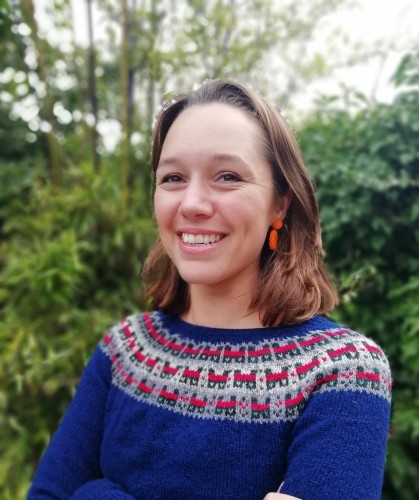 Dr Hannah Forde
Dr Hannah Forde
University of Cambridge
Hannah Forde is a Research Associate at the Centre for Diet and Activity Research (CEDAR) at the University of Cambridge. She is interested in researching ways to regulate the commercial food system to improve human and planetary health. Hannah is currently conducting qualitative research to prepare for new UK restrictions on TV food advertising and online food marketing. Prior to this, she completed her PhD research at CEDAR with the support of funding from Public Health England (PHE) and the University of Cambridge ESRC Doctoral Training Partnership. Her research examined changes in soft drinks marketing in response to the UK Soft Drinks Industry Levy, a landmark policy in the UK Government’s Childhood Obesity Plan. Hannah holds an undergraduate degree in Economics and Statistics from the University of St Andrews, and a Master’s degree in Nutrition, Physical Activity and Public Health from the University of Bristol. She has previously worked in market and social research in both London and Edinburgh. During her PhD, she also completed an internship at the Department of Environment, Food & Rural Affairs, which was funded by the ESRC Doctoral Training Partnership
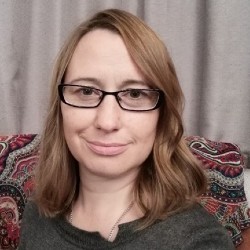 Dr Claire Thompson
Dr Claire Thompson
University of Hertfordshire
Claire is a Senior Research Fellow at the University of Hertfordshire and joined the ARC East of England (EoE) in January 2020. Her role involves building links with the ARC EoE populations in focus and developing and providing research support and initiative for programmes of research and implementation relating to prevention and early detection in health and social care. Her research interests focus on place-based inequalities, particularly in relation to food, health and wellbeing. Specifically, she is interested in food and alcohol environments, food poverty, dietary health inequalities, food policy, and urban regeneration. Before joining the University of Hertfordshire, Claire was based at the London School of Hygiene and Tropical Medicine working on a variety of projects including Olympic regeneration, alcohol licensing, and a Wellcome Trust Society and Ethics fellowship investigating the health and wellbeing challenges of foodbanking. She completed a PhD in Human Geography at Queen Mary University of London.
Co-Chairs
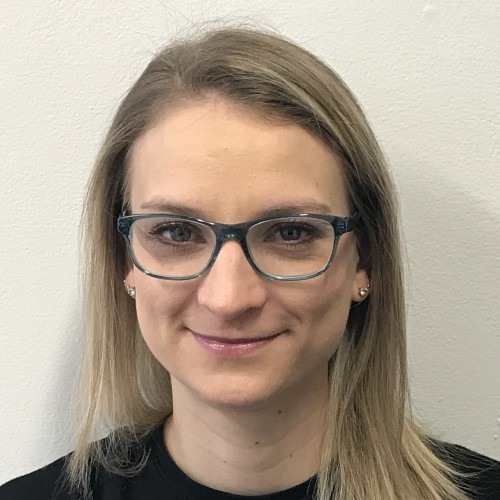 Dr Julia Mueller
Dr Julia Mueller
Dr Julia Mueller is the Regional Co-Lead of ASO East of England. She is a postdoctoral Research Associate at the MRC Epidemiology Unit, University of Cambridge, within the programme on Prevention of Diabetes and Related Metabolic Disorders in High Risk Groups. She currently leads the quantitative analysis on an NIHR Programme Grant for Applied Research on developing and evaluating scalable behavioural weight management programmes for the prevention and treatment of type 2 diabetes. Julia completed a Bsc in Psychology and an MSc in Health Psychology before completing her PhD in 2018 at the University of Manchester. Her research interests focus on using technology and digital solutions for health benefit and she has co-authored a book on “Developing Medical Apps and mHealth Interventions” (Springer).
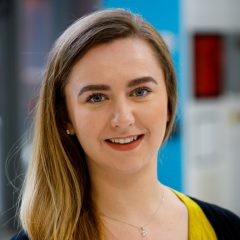 Ms Rebecca Jones
Ms Rebecca Jones
Ms Rebecca Jones is the Regional Co-Lead of ASO East of England. She is a final year PhD student in the ‘Prevention of Diabetes and Related Metabolic Disorders in High Risk Groups’ programme at the MRC Epidemiology Unit, University of Cambridge. Prior to commencing her doctoral studies, Rebecca worked in tier 2 weight management services for many years and developed a strong interest in the relationship between weight management and mental wellbeing. Rebecca’s thesis aims to determine the role of mental health in behavioural weight management interventions. She is leading and co-authoring multiple systematic reviews and empirical papers in this field, and is a co-investigator in the development of two scalable, acceptance-based interventions for weight management. Rebecca’s profile can be viewed here: https://www.mrc-epid.cam.ac.uk/people/rebecca-jones/
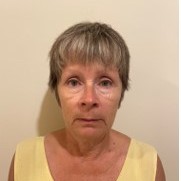 Dr Carly Hughes
Dr Carly Hughes
Dr Carly Anna Hughes is a GP and a trained bariatric physician working in the Fakenham weight management service (FWMS). She was a member of the NICE CG 189 Obesity guidance group. She set up FWMS which was awarded the National Obesity Forum Best Practice award and the Association for the Study of Obesity Best Practice award. She was a co-founded of the Norfolk Obesity Network. She is an honorary lecturer at the University of East Anglia Medical School, and a researcher with the MRC epidemiology unit at Cambridge. She has published over 20 articles, and lectures nationally and internationally on Obesity related topics. She is a World Obesity Federation SCOPE National Fellow.




